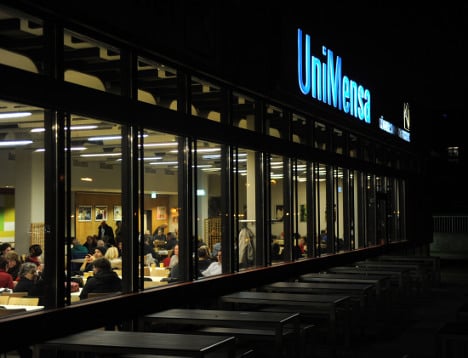Settling into student life can often involve a lot of admin, and Germany universities’ love affair with having physical copies of every document may leave you drowning in paperwork.
Knowing the basic vocabulary you are bound to encounter on arrival – whether physically or virtually amid the pandemic – at your host university will remove some of the stress from your first few weeks.
Sich immatrikulieren
Let’s start at the very beginning. The phrase sich immatrikulieren, close to the English matriculate, means to enrol yourself at your new university. This is something you will likely have to do before you even step foot in Germany and is definitely not a step you can skip. Remember to check how you should go about enrolling at your host institution well in advance of arrival.
READ ALSO: Studying in Germany: Seven unusual academic traditions
Die Immatrikulationsbescheinigung
At German universities you will find you need a Bescheinigung (certificate) for almost everything, so this is not a term you should forget. The Immatrikulierungsbescheinigung is your certificate of enrolment. It is good to keep this to hand as you may have to present it to receive funding such as an Erasmus grant.
Sich anmelden
This phrase means to enrol yourself, or register for something and is generally used when signing up for teaching modules in Germany. Very little of the enrolment process is handled by your subject faculty and in many cases you will be solely responsible for registering for each individual class you want to take, as well as making sure they fit well into your timetable – look out for the ‘sich anmelden’ button on your university’s online learning portal.
Das Semesterticket
This is something you will want to make the most of during your time in Germany. The Semesterticket, often doubling as your student ID or library card, entitles you to travel for free across the region you are living in. Your university website will usually include information on the exact boundaries of the travel area, but the pass is generally valid for all regional transport links within your city and its surroundings.
Die Vorlesungszeit
The concept of a holiday or vacation period does not really exist in the German education system and instead the calendar is split into die Vorlesungszeit (lecture period) and die vorlesungsfreie Zeit (non-lecture period). During the months where there is no teaching, you may still have coursework deadlines or online/in-person exams. There is some time for rest, but don’t get too carried away by the holiday spirit!
READ ALSO: Studying in Germany – nine very compelling reasons to do it
Die Mensa
This is perhaps the most important piece of vocabulary you will need to get to grips with. The Mensa is your university canteen or cafeteria, and will often serve food for every meal of the day. It is worth making use of this as at most universities you can buy a whole meal for under €3.

University of Cologne’s Mensa. Photo: DPA
Here are some other useful terms you may come across:
die Kommilitonen – classmates/fellow students
der Dozent/die Dozentin – tutor/lecturer
das Seminar – seminar
die Vorlesung – lecture
die Bibliothek – library
die Klausur – exam
das Referat – oral presentation
der Hörsaal – lecture hall
das Hochschulbüro für Internationales – university international office
der BAföG – government loan system for German students
ECTS Kredite – international system for module accreditation. These credits can then be converted into your home country’s own credit system
die Pflichtleistung – compulsory coursework
belegen – to take (a class)
absolvieren – to pass
sich exmatrikulieren – to de-register







 Please whitelist us to continue reading.
Please whitelist us to continue reading.
Member comments